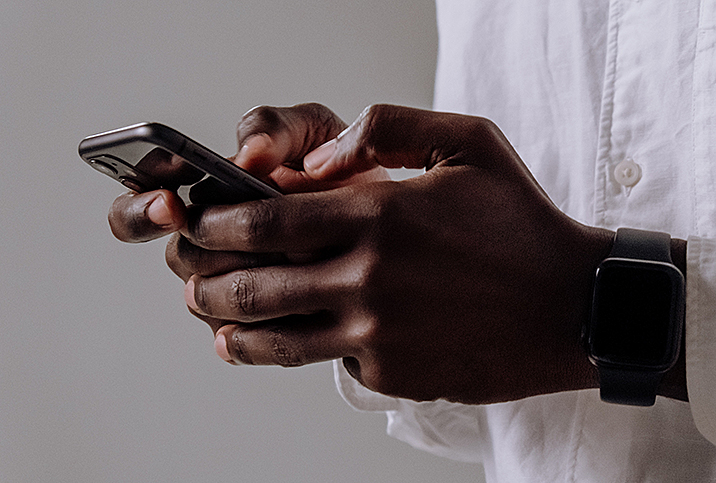How to Get the Most Out of Your Pregnancy App

People are increasingly turning to apps as a primary source of healthcare information and management. Pregnancy apps are among the most popular, with 55 percent of women using apps related to pregnancy, birth or child care, according to a 2016 study published in Healthcare Informatics Research. Research suggests these apps are particularly appealing to first-time mothers, and information about pregnancy risks and diseases is most sought after.
What to expect from pregnancy apps
Pregnancy apps provide unique features to users in an accessible way, so their growing popularity is unsurprising.
"I think apps are a great way to connect with your unborn baby in a format that was not available until recently," said Apurva Shah, M.D., a board-certified OB-GYN in Boston and member of the medical advisory board for the Mira fertility tracker. "It gives expansive information that is not typically being exchanged in prenatal visits that are getting shorter and quicker due to increased stresses on the healthcare system."
In addition to information, apps can also support emotional well-being.
"Most patients are looking for an app to make them feel supported 24/7," said Amina Albeyatti, M.B.B.S., a general practitioner specializing in women's and children's health at the Private GP Group in London. "They can get interesting facts about the pregnancy and how to enjoy and share the process. This is great and keeps things positive."
Apps vary widely in what they offer to pregnant women.
"Most apps will provide, at the very minimum, information on the progress of pregnancy on a weekly basis, signs that can raise a red flag, being able to put in notes specific to a personal journey through the pregnancy, contraction timer and kick-count meter," Shah explained.
"From there on, different apps branch out to provide different information sections. This can be access to the pregnancy marketplace, access to support groups, access to healthcare providers and 3D rendering of the fetus," he added.
What to look for in an app
Adopting a strategic approach when looking for pregnancy apps is essential.
"There are five key factors to consider when pregnant moms look for apps: the ease of navigation [user interface], information based on scientific evidence, cost of the app, ability to interact with peers for support, and postpartum support," Shah advised.
It's also important to remember that each pregnancy is unique.
"I would remind patients that these apps are designed for supernormal pregnancies and to be mindful if your pregnancy has complications or health differences," Albeyatti said.
There are also ways that apps can be improved to better fit pregnant women's needs and preferences. Both health professionals and users want to be able to access pregnancy apps that are relevant to their local healthcare context and come from a trusted source, according to a 2018 review published in JMIR mHealth and uHealth. Researchers suggested that greater involvement of scientists and healthcare professionals in the app development process would help to achieve these aims.
What to watch out for with apps
Unfortunately, the quality of apps is highly variable. More than 60 percent of apps do not provide comprehensive information for every stage of pregnancy and only 28 percent cite scientific literature, according to a 2021 analysis in the Journal of Medical Internet Research. Researchers also indicated that the ability to find specific information was less than ideal, with only 24 percent of apps providing a text search field.
All of this makes navigating pregnancy apps difficult.
"There are literally hundreds of pregnancy apps that crowd the app store today," Shah said. "Unfortunately, these apps are not mandated to be evidence-based, or rather, are not regulated for their content quality. It falls upon the user to verify the credibility of the app they are using."
Beyond the apps
Whether or not you choose to use apps during your pregnancy, maintaining a close relationship with reputable healthcare professionals throughout is imperative.
"It would be advisable to have an obstetrician that is certified by her/his governing board, and it is very easy to verify if your provider is certified or not," Shah said. "The American College of Obstetricians and Gynecologists also publish numerous patient education materials that are easily available in various formats, and you can rest assured that that information is highly curated and accurate."
Support can also come from more informal sources.
"I also recommend my patients watch 'One Born Every Minute' [a 2010 documentary series], which shows a sensible and honest view of the labor ward, so you know what to expect during a straightforward delivery versus an emergency requiring intervention," Albeyatti said.
When confronted with so many different avenues for support and information, it can be easy to overlook your own judgment and bodily cues.
"Trust your body," Albeyatti said. "If it feels unwell, seek help and support. Be clear about your concerns so that you can expect a clear response from your healthcare professional. Seek a second opinion if you're not sure. But if multiple sensible people reassure you, be reassured and try to enjoy the pregnancy."
















